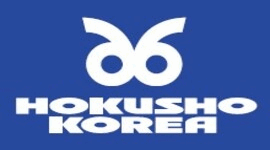| AutoStore / Warehouse Automation Solution to Accelerate Korean Market Penetration | |



|
|
|
|
|
|
Warehouse Automation Solution Accelerates Korean Market Penetration 65,000 robots in operation at more than 1,400 logistics sites in 54 countries 'proving their worth' 2024/05  “In the 18 years since Autostore first went on sale in 2005, we have more than 65,000 robots in operation at more than 1,400 sites in 54 countries. And we have a 99.7% uptime rate. As logistics automation technology becomes an essential competitive advantage, Autostore's long history of customer trust gives us a strong competitive advantage.” Autostore held a media conference last month to introduce its strategy and representative Korean customer cases in the Korean market. “Autostore has a broad and diverse customer base with strong presence in e-commerce, apparel, and 3PLs,” said David Clear, Vice President of Global Accounts at Autostore. ”The strength of Autostore is that it is simple and highly productive with efficient use of space.” The actual Autostore configuration is simple: controller, ports (workstations), bins, grid, and robots, but the five modules work together seamlessly, allowing for flexible customization to meet customer needs. Bin throughput is also growing significantly. In 2018, the company was able to process 5,000 bins per hour, and now, thanks to software upgrades, it's up to 20,000 bins per hour. “We see a lot of potential for growth in autostore due to the high demand for automated logistics facilities around the world,” said David Clear, Vice President of Sales and Marketing at Autostore, ”especially in e-commerce, retail, and healthcare.” Increasing demand for logistics automation in the manufacturing industry “Korea's e-commerce market ranks about 5th to 7th in the world,” said Kim Kyung-soo, CEO of Autostore Korea. ”This means that there is a high demand for logistics automation facilities due to the high labor costs associated with online consumption.” As a result, global logistics automation companies are very interested in the Korean market. Autostore has also established its seventh branch in Korea and the second in Asia after Japan. “Autostore has a lot of experience with just one type of automation, cube storage,” said Kim Kyung-soo, CEO of Autostore. ”From Lesotho, a small city in South Africa, to the FBI in the U.S., Autostore has proven its value whenever there is a storage issue, regardless of industry or region.” In Korea, 26 sites have adopted and are operating Autostore. “When we look at the motivations for warehouse automation demand from our customers, they are manpower shortage, operational efficiency, warehouse space cost, and scalability,” said Kim Kyung-soo. ”In particular, as the volume of goods increases due to the growth of e-commerce, there is a shortage of manpower, especially skilled workers, and the performance of warehouses is poor compared to peak periods.” “Autostore is an alternative solution to these problems,” he emphasized. Autostore is based on a partnership business. The sales are completely left to the partners, and the autostore plays a role in supporting the partners in market development, sales, and promotion. Korean partners include LG CNS, Samsung SDS, Acetech, Dematic, Hyundai Globis, and Cardex. “In recent years, the demand for logistics automation in the manufacturing industry has been gradually increasing,” said Kim Kyung-soo, CEO of GS Caltex. ”As different fields of factory automation and logistics automation are converging, we will actively enter the manufacturing industry.” GS Caltex utilizes Autostore as a downtown MFC  “Autostore is characterized by the fact that it can be installed not only in the suburbs where logistics centers are traditionally located, but also in the city center,” said Kim Dong-yeon, director of Autostore Korea. A representative example in the city center is the MFC located at GS Caltex's Naegok gas station. GS Caltex installed an autostore measuring 12 meters in length, 8 meters in width, and 7.5 meters in height in a space of about 29 square meters, consisting of 1,800 bins, six robots, two shipping ports, and one receiving port. GS Caltex has built an automated warehouse with a high storage capacity for last-mile order fulfillment through the autostore and is using it as an MFC for fast order processing. CJ Logistics has also introduced and is using an autostore at the GDC of Incheon International Airport, where it provides iHub fulfillment services. The autostore covers an area of about 795 square meters, with 80,000 bins installed in 16 tiers and 140 robots. There are 13 shipping ports and 5 receiving ports. CJ Logistics has increased the efficiency of its warehouse space by four times and the volume of shipments by 1.5 times with the introduction of the autostore. This resulted in a 2.8-fold increase in shipping efficiency, as well as labor savings and improved picking accuracy. Apparel fulfillment company Hamilogics implemented an autostore for intensive inventory storage and fast, accurate picking. It covers an area of 55 square meters and consists of eight robots, 7,000 bins, two shipping ports, and one receiving port. With the autostore, Hamilogics maximized inventory storage efficiency, reduced picking turnaround time, and increased accuracy. This has freed up space and allowed the company to take on additional customers. Hamilogics plans to expand its autostore. <Copyright ⓒ Monthly Logistics Magazine (www.ulogistics.co.kr) All rights reserved>
|





| 
|



























































